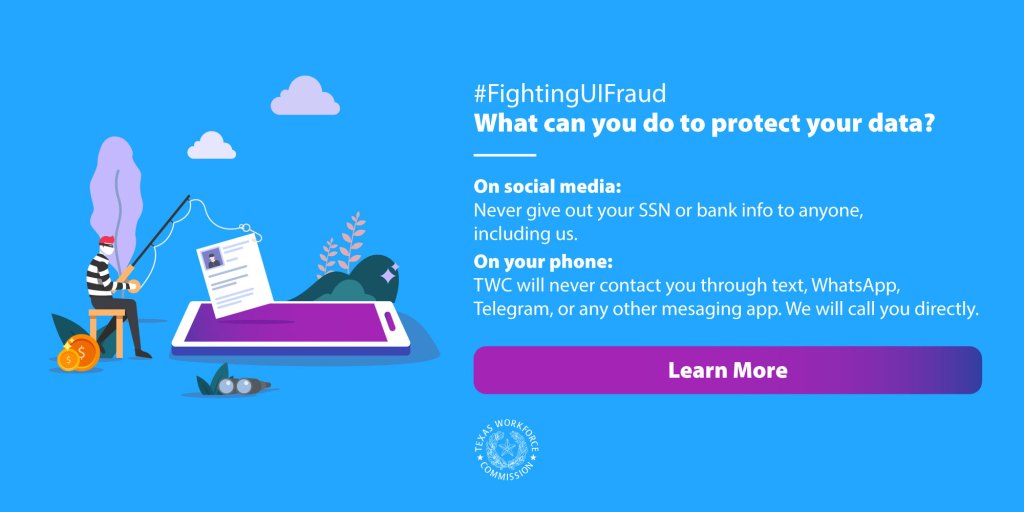
Did you know that according to the Center for Victim Research an estimated 1 in 10 Americans have had their identities stolen? By working together, and by practicing internet security best practices, we can stop fraud in its tracks and make sure your identity remains safe and secure.
How is my identity being stolen?
No TWC systems have been breached, but criminal elements can use identities stolen from Texans in an attempt to fraudulently apply for unemployment benefits. The most common ways an identity is stolen is through data breaches, hacking and phishing. Hacking of cell phones and other portable devices is now a worrying trend when it comes to identity theft. While many people have strong security on their computers, they may not have these protections on their cell phones and tablets. Remember, if you wouldn’t click on a link or reply to a message on your computer, follow the same level of vigilance on your phone or tablet.
The best ways to protect yourself and stop ID thieves in their tracks are:
- Monitor your credit regularly.
- Install and use antivirus and antispyware software. Be sure to update this software frequently.
- Never give out your private data – like your social security number – to anyone unless absolutely necessary. Legitimate organizations that need this data, like the IRS, will not call, email or text you to ask for it.
- Do not post your social security number, screenshots of your UI accounts, bank or payment information, or even your home address on any social media platform, even in direct messages to TWC.
- When in doubt, ask questions. Ask why the organization needs it, how they will protect it, if there is an alternative identifier that can be used instead, and if the organization can use only the last 4 digits of the SSN.
How to know if your identity has been stolen:
The best way to make sure your identity hasn’t been stolen is constant vigilance. There are some telltale signs someone has stolen your identity and is using it for fraudulent purposes. Here are some actions you can take to monitor for identity theft.
- Track the bills you owe and their bill dates. If you stop getting a bill, it might be a sign someone has changed the billing address.
- Review all bills, charges and bank statements to look for anything that seems suspicious or out of the ordinary.
- Check your credit reports.
- Consider using identity monitoring services.
Stopping fraud is a team effort
Treat your TWC account and all accounts like you would your bank account. If you suspect fraud is occurring, report the fraud immediately using the TWC fraud portal. The Texas Workforce Commission will investigate every unemployment benefit claim to confirm identity and to lock accounts that are fraudulent. With your help, we can help Texans in need by stopping these criminals from fraudulently obtaining unemployment insurance benefits.



